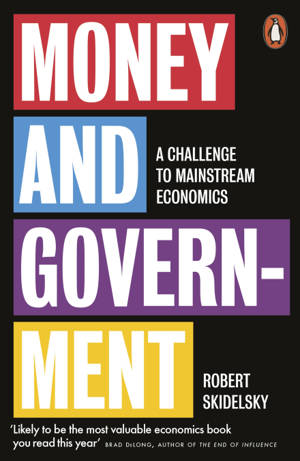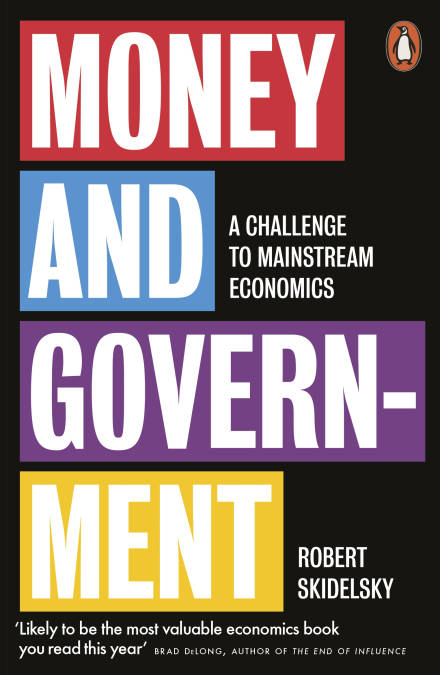
- Retrait gratuit dans votre magasin Club
- 7.000.000 titres dans notre catalogue
- Payer en toute sécurité
- Toujours un magasin près de chez vous
- Retrait gratuit dans votre magasin Club
- 7.000.0000 titres dans notre catalogue
- Payer en toute sécurité
- Toujours un magasin près de chez vous
Description
The dominant view in economics is that money and government should play only a minor role in economic life. Money, it is claimed, is nothing more than a medium of exchange; and economic outcomes are best left to the 'invisible hand' of the market. In contrast, the view taken in this important new book is that the omnipresence of uncertainty makes money and government essential features of any market economy. One reason we want to hold onto money is that we don't know what the future will bring. Government - good government - makes the future more predictable and therefore reduces this demand for money.
After Adam Smith, orthodoxy persistently espoused non-intervention in markets, but the Great Depression of 1929-32 stopped the artificers of orthodox economics in their tracks. A precarious balance of forces between government, employers, and trade unions enabled Keynesian economics to emerge as the new policy paradigm of the Western world. However, the stagflation of the 1970s led to the rejection of Keynesian policy and a return to small-state neoclassical dominance. Thirty years later, the 2008 global financial crash was severe enough to have shaken the neoclassical supremacy, but, curiously, this did not happen. Once the crisis had been overcome - by Keynesian measures taken in desperation - the pre-crash dogma was reinstated, undermined but unbowed. Since then, no new 'big idea' has emerged, and neoclassical economics has maintained its sway, enacting punishing austerity agendas that leave us with a still-anaemic global economy.
This book aims to familiarize the reader with essential elements of Keynes's 'big idea'. By showing that much of economic orthodoxy is far from being the hard science it claims to be, it aims to embolden the next generation of economists to break free from their conceptual prisons and afford money and government the starring roles in the economic drama that they deserve.
Spécifications
Parties prenantes
- Auteur(s) :
- Editeur:
Contenu
- Nombre de pages :
- 512
- Langue:
- Anglais
Caractéristiques
- EAN:
- 9780241352830
- Date de parution :
- 05-09-18
- Format:
- Ebook
- Protection digitale:
- Adobe DRM
- Format numérique:
- ePub

Les avis
Nous publions uniquement les avis qui respectent les conditions requises. Consultez nos conditions pour les avis.






